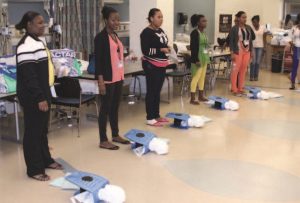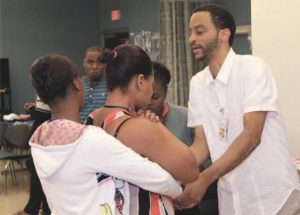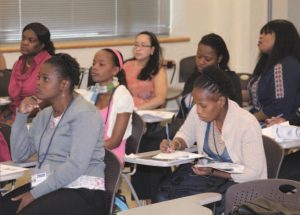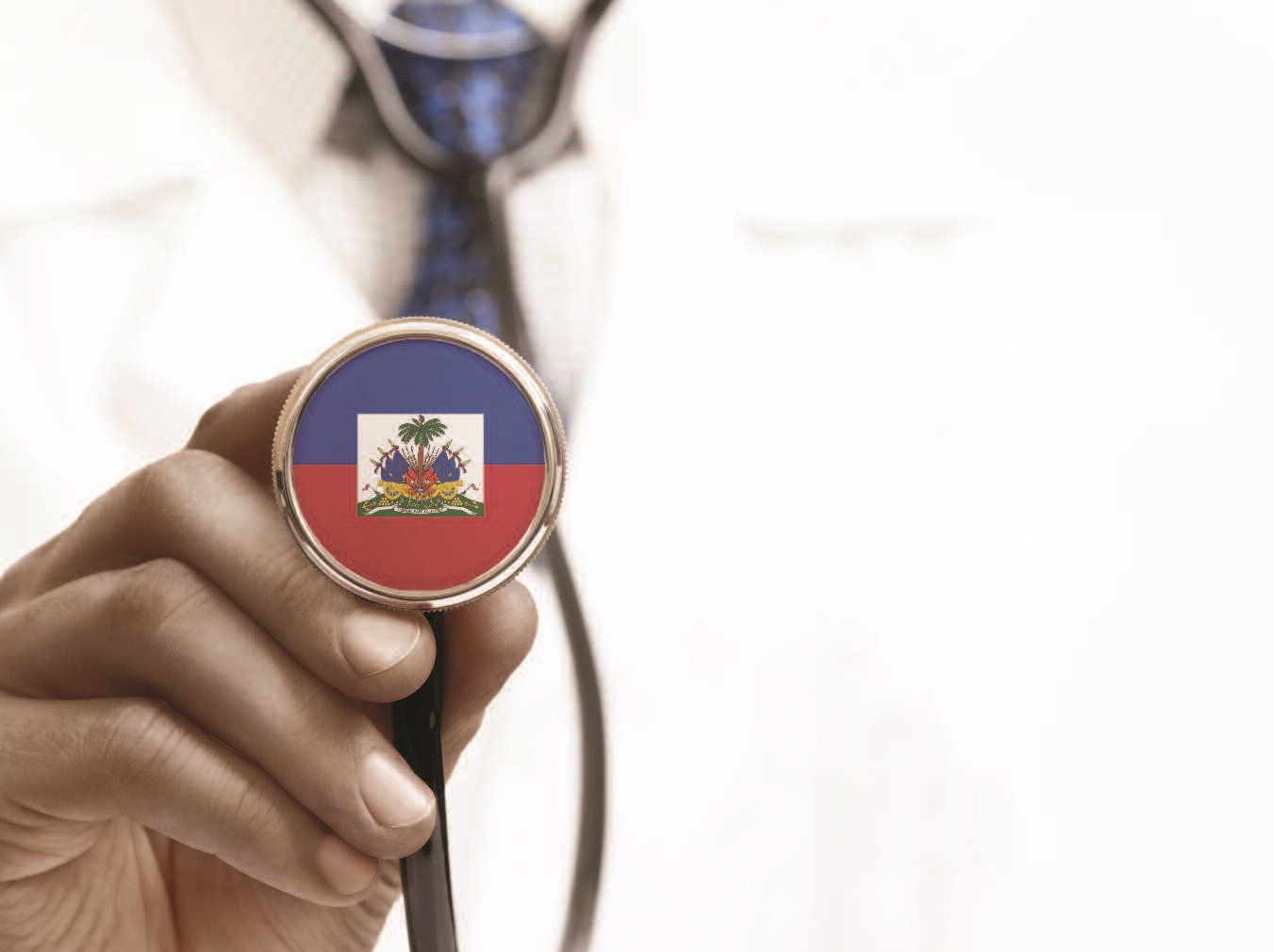A trinity of benefactors advances nursing education.
By Kathryn C. Salamone
Haiti… where natural disasters like the 2010 earthquake and Hurricane Matthew in 2016 exacerbate already unforgiving conditions for its 10 million-plus people who live in abject poverty; where more than half of the population is undernourished and 800,000 people experience food insecurity every day, and where nearly 10,000 people have died of cholera since an outbreak in 2010, the first in a century.
Despite being the poorest country in the Western Hemisphere, despite the existence of an ill-equipped and under-staffed healthcare system—25 physicians and 11 nurses serve 100,000 people—Haiti can now look forward to better health among its people.
Thanks to the combined efforts of the Trinitas School of Nursing (TSON), the College of Saint Elizabeth (CSE), and the Sisters of Charity of Saint Elizabeth (SC), healthcare leaders in New Jersey form a virtual league of healthcare “Avengers.”
 As the program began to take shape, The Haiti Student Nurse Project soon became known as Global Connections in Nursing Education: Haiti and the USA – a name that aptly communicates its essence: assuring that Haitian nurses have access to learning the best practices used in the US that they can then apply in responding to the needs of their fellow Haitians. Since 2014, the program has educated student nurses enrolled at Université de Notre Dame in Jacmel, Haiti, located about 100 miles south of Port au Prince. Its goal: to improve healthcare by strengthening the competence of its nurses. The student nurses have flown to New Jersey to undergo total immersion in US nursing practices and procedures, making the program one of the very few, if not the only one of its kind, to bring students to the United States for their learning experience.
As the program began to take shape, The Haiti Student Nurse Project soon became known as Global Connections in Nursing Education: Haiti and the USA – a name that aptly communicates its essence: assuring that Haitian nurses have access to learning the best practices used in the US that they can then apply in responding to the needs of their fellow Haitians. Since 2014, the program has educated student nurses enrolled at Université de Notre Dame in Jacmel, Haiti, located about 100 miles south of Port au Prince. Its goal: to improve healthcare by strengthening the competence of its nurses. The student nurses have flown to New Jersey to undergo total immersion in US nursing practices and procedures, making the program one of the very few, if not the only one of its kind, to bring students to the United States for their learning experience.
Sister Janet Lehmann, SC, a past chair of the Nursing Program at the College of Saint Elizabeth, envisioned an innovative collaboration with the TSON and CSE. As the current Dean at the Jacmel campus of the Université de Notre Dame, Sister Janet knew that a partnership between the two New Jersey learning institutions could be invaluable to a nation so desperately in need of improved healthcare.
She called TSON and CSE to propose a bold, lasting and beneficial venture. “I asked for faculty and curriculum support plus the opportunity for 12 of my junior nursing students to gain bedside patient care,” Sr. Janet explains. “In Haiti, nursing education relies heavily on memorization which can limit a nurse’s ability to retain the knowledge needed to respond quickly, efficiently. It’s a constant challenge to call to mind what’s needed for competent patient care. From the planning stages, we realized the education program should concentrate on teaching
‘hands-on’ care.”
During the two-week immersion programs in 2014 and again in 2016 at the TSON’s Simulation Lab located in the Elizabeth I. Kellogg Building at the Union County College Elizabeth campus, the student nurses cared for computer-controlled “sim patients.” Sister Janet added, “The student nurses could perform their nursing care in different scenarios with greater confidence as they improved their critical thinking skills.”

Seasoned nursing professionals at TSON and CSE bought into the partnership without hesitation: Mary Beth Kelley, recently retired Dean of TSON, who served more than 40 years in that role, and Professor Eileen Specchio of the CSE Nursing Program who herself has 30 years
behind her.
Dean Kelley notes, “From the beginning, we took great care in developing the in-depth curriculum. Creolespeaking faculty members of TSON translated in both Creole and French and CSE Nursing program graduate students and alumni were heavily involved. Experienced clinical specialists from Trinitas Regional Medical Center and Saint Clare’s Hospital in Denville, another SC sponsored hospital, and those like SC who provided administrative support became a team of ‘super heroes’ who helped bring our vision to reality.”

The program received support from a trinity of benefactors. In addition to the use of the TSON lab, the Trinitas Health Foundation approved a grant that funded the purchase of the simulation equipment specifically designed for countries like Haiti. CSE offered its dorms for the students during their stay.
“We created a challenging environment to educate Haitian nurses so they could gain greater competence and confidence in patient care,” says Dr. Specchio. “Our vision of a global outreach to initiate real change in nursing care in Haiti, our experience with the students, the results we’ve seen in Haiti, all show that we’ve succeeded.”
 FOCAL POINTS
FOCAL POINTS
Global Connections in Nursing Education: Haiti and the USA has lived up to its goal of answering global health needs that the World Health Organization and the International Council of Nurses have identified: to design education programs to promote better health, reduce disease burdens, and lower risk factors.
Here’s what the Trinitas program has concentrated on:
• Hygiene, sanitation/waste control
• Infectious disease, asepsis, and wound care
• Maternal emergencies: hemorrhage, eclampsia, and dystocia
• Women’s health: STD’s, HIV, condom use, self-breast exam, breastfeeding
• Cardiac disease: hypertension, stroke prevention, congestive heart failure
• hydration/dehydration fluid management
• First aid and disaster management: infant, child and adult CPR, choking
• Mental health: communication/active listening, empathy, learned helplessness, domestic violence, parenting principles
• Children issues: malnutrition, assessment, diarrhea prevention and management, and choking
To learn more about the Trinitas School of Nursing, visit:
www.trinitasrmc.org/school_of_nursing.htm





